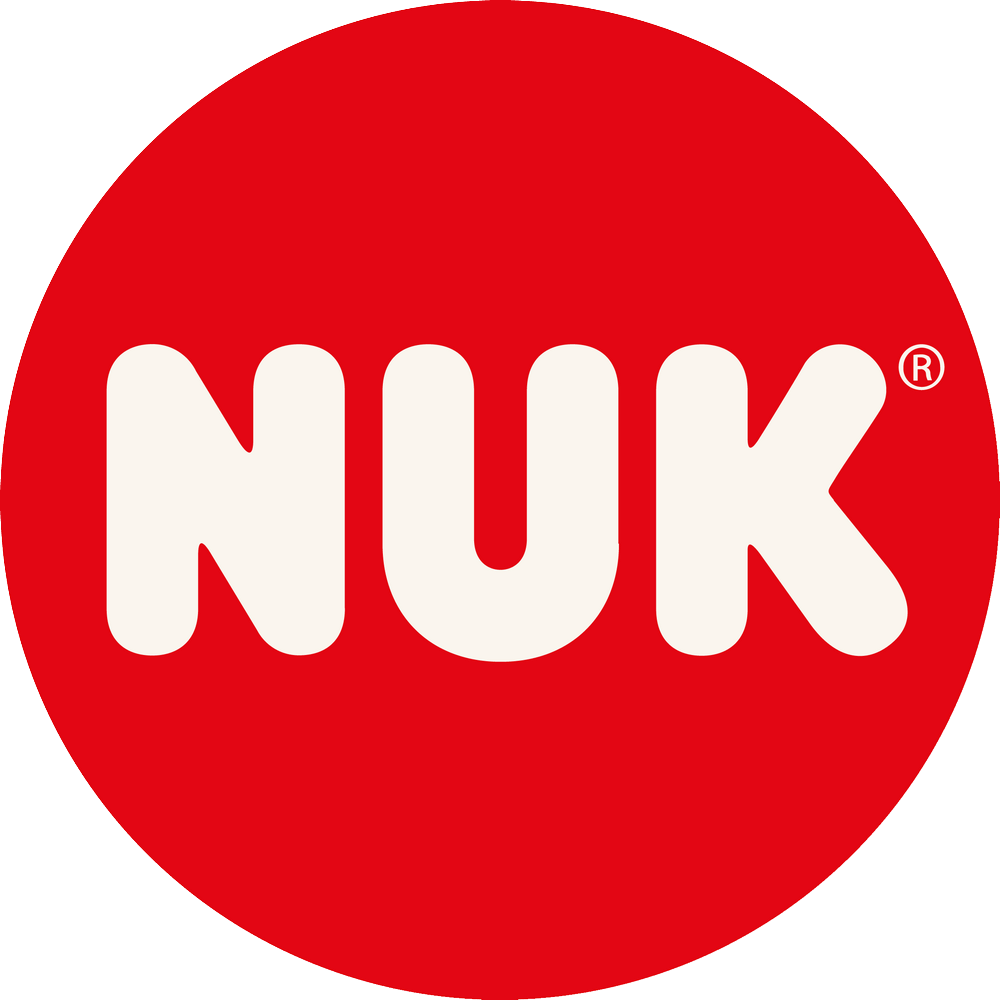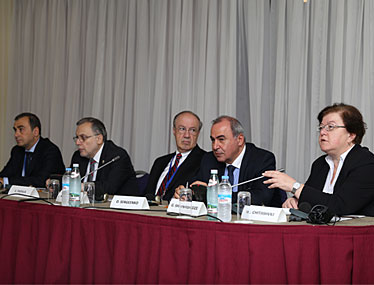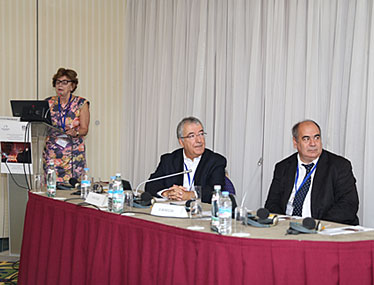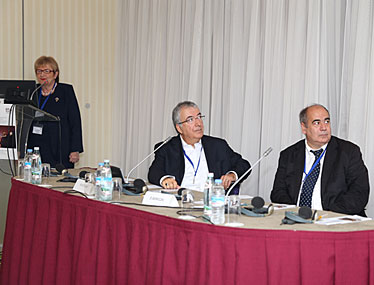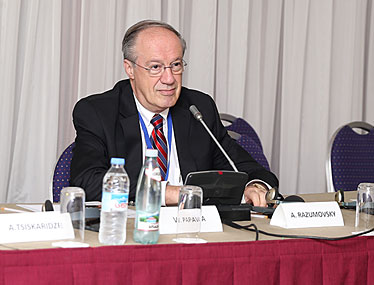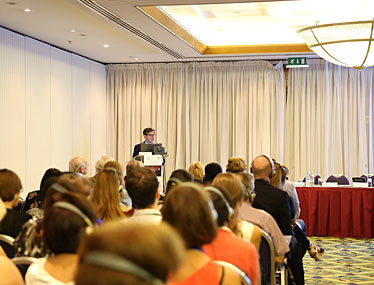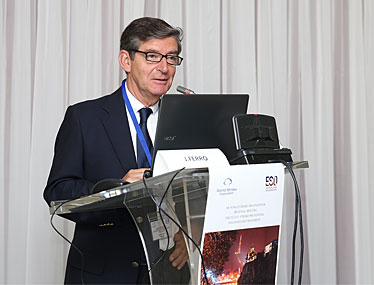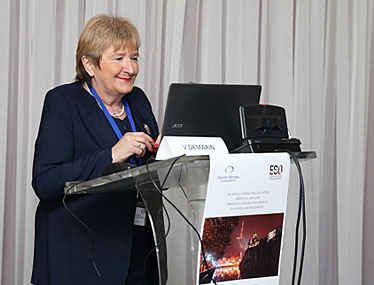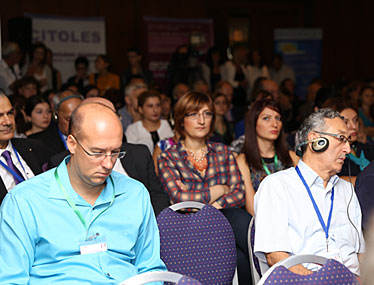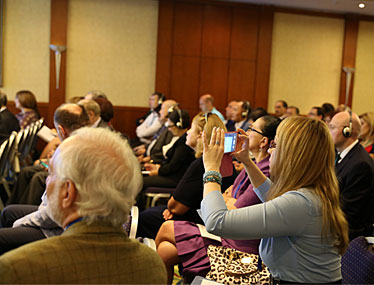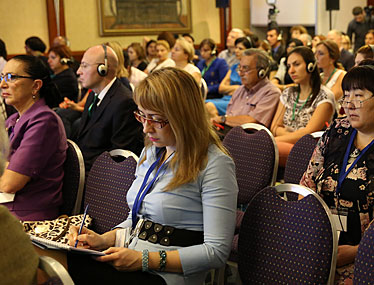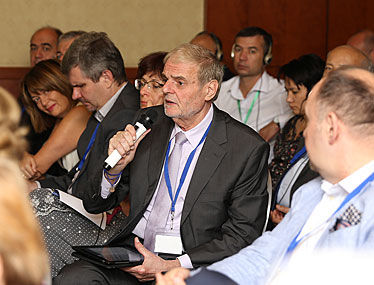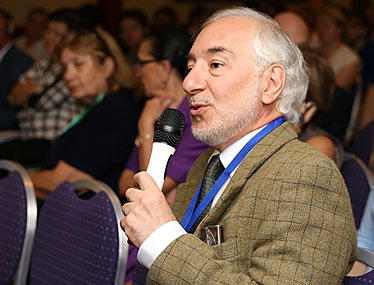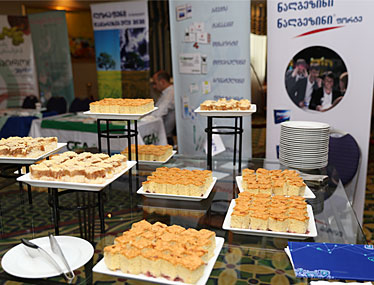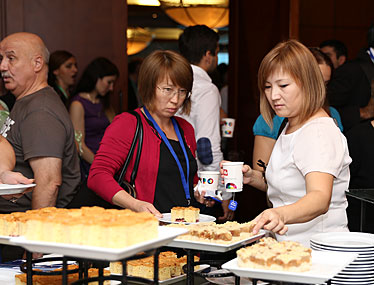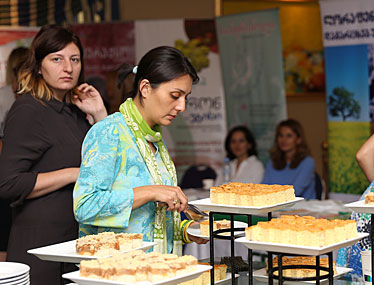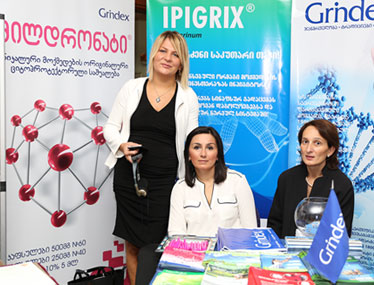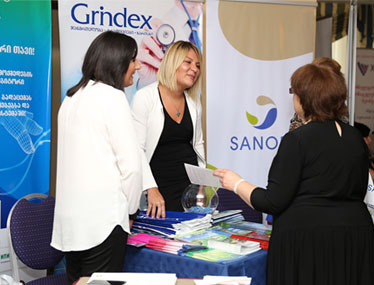6th WORLD STROKE ORGANIZATION REGIONAL MEETING TBILISI 2015: STROKE PREVENTION, DIAGNOSIS AND TREATMENT
6th WORLD STROKE ORGANIZATION REGIONAL MEETING TBILISI 2015: STROKE PREVENTION, DIAGNOSIS AND TREATMENT
მისამართი: თბილისი, სასტუმრო "ქორთიარდ მარიოტი"
თარიღი: 24/09/2015
SEPTEMBER 24-26, 2015 TBILISI, GEORGIA
Under the auspices of
World Stroke Organization (WSO)
European Stroke Organization (ESO)
Ivane Javakhishvili Tbilisi State University (TSU)
Georgian Stroke Association (GSA)
Petre Sarajishvili Institute of Neurology
International Scientific Advisory Board / Organizing Committee
Alexander Razumovsky (USA), Co-Chairman
Roman Shakarishvili (Georgia), Co-Chairman
Alexander Tsiskaridze (Georgia), Chairman of the Organizing Committee
Natan Bornstein (Israel), Ioseb Burduladze (Georgia), Valeria Caso (Italy)
Anna Czlonkowska (Poland), Daniel Hanley (USA), Werner Hacke (Germany),
Zaza Khachiperadze (Georgia), Zaal Kokaia (Sweden), Bo Norrving (Sweden), Vladimer Papava, (Georgia), Davit Sergeenko, (Georgia), Fridon Todua
(Georgia)
Supported by
Shota Rustaveli National Science Foundation Conference Grant
Dear colleagues and friends!
It is our pleasure to welcome you again for the 6th World Stroke Organization (WSO)
Regional Meeting to be held in Tbilisi, Georgia on September 24-26, 2015. This year the Meeting has been endorsed by the World Stroke Organization, European Stroke Organization and other prestigious professional/academic organizations and is open to all who are interested in cerebrovascular diseases. On behalf the Organizing Committee, we extend a very hospitable invitation to all of you interested in stroke prevention, diagnosis and treatment.
Stroke Regional meetings in South Caucasus region became traditional and are organized triennially in Tbilisi, Georgia. Since our 1st Stroke Regional meeting in 2000 under auspices of International Stroke Society, which is now WSO pass fifteen years and four more
Regional Stroke meetings are conducted. Every meeting we had increased number and expanded geography of the audience compared to each previous meeting. Our 6th WSO
Regional Stroke meeting will expand further and will attract even more participants.
It is a not surprising that the meeting traditionally takes place in the capital of Georgia -
Tbilisi. With the towering Caucasus Mountains forming the border between Europe and Asia, Georgia has long been an important contact zone. In this mystical land you will be captivated by a thrilling blend of eastern enigma and western elegance. The traditions of the East and
West meet in Georgia to form a culture unlike any other in the world. Tbilisi lies in the center of eastern Georgia, in the foothills of the Trialeti mountain range. According to Georgian legends, it was founded in the 5th century by King Vakhtang Gorgasali who, while hunting, shot a pheasant which fell into a warm spring and was either boiled or healed. Either way, the king was inspired to found a city on the site, and the name of the city derives from the Georgian word “tbili” meaning "warm".
The conference will take full advantage of its location in Tbilisi – a charming city with more than 1500 years of history and an unforgettable blend of oriental and occidental culture. Its diverse architecture encompasses Eastern Orthodox churches, art nouveau buildings with ornate balconies and Soviet Modernist structures. Looming over it all are Narikala Fortress, a reconstructed 4th-century citadel, and Kartlis Deda, an iconic statue of Mother Georgia.
The city brims with history and has a dramatic setting on hillsides either side of the swift
Mtkvari River. Its Old Town, at the narrowest part of the valley, is still redolent of an ancient Eurasian crossroads, with winding lanes, old balconied houses, leafy squares, handsome churches and countless busy bars and cafes. Tbilisi is also a modern city trying to move forward in the 21st century after the strife and stagnation of the late 20th. Its streets are crowded with pedestrians, construction debris and hurtling or crawling traffic. Flagship building
projects, from a new cathedral Sameba and presidential palace to revamped parks and museums, coexist with crowded old markets, confusing bus stations and shabby Soviet apartment blocks. Although the city has been destroyed and rebuilt some 29 times, the layout of the Old Town is largely intact with narrow alleys and big crooked houses built around courtyards. Tbilisi is still the beating heart of the South Caucasus and we are sure that you’ll be able enjoyed it.
And at last… Georgian wines! When it comes to winemaking, Georgia is considered a cradle of wine. Grapevine has been cultivated in the fertile valleys of Georgia for about 8000 years. With over 500 varieties of endemic grapes and the world’s first cultivates grapevines, the traditions of viticulture are entwined with the country's national identity. It is also believed that the word “wine” is of Georgian origin (“gvino” in Georgian). Scientists have discovered the world's oldest wine – a vintage produced 8,000 years ago. The find pushes back the history of wine by several hundred years. New discoveries show how Neolithic man was busy making red wine in Shulaveri (Georgia). Although no liquid wine from the period has survived, scientists have now found and tested wine residues discovered on the inner surfaces of 8,000-year-old ceramic storage jars. The end of September is a time of “Rtveli”, a very special tradition of winemaking, which has almost 4000 years history. Grape juice is stored in large "Kvevris", cone-shaped clay jugs buried in the ground, in which the wonderful processes of fermentation and maturation take place and the Georgian wine is bearing. We recommend you not to lose opportunity to take part in Rtveli ritual in the Kakhetian or Kartlian vineyards.
The members of faculty of these meetings consisted of foremost experts in the field of stroke medicine as well as prominent neurologists from the South Caucasian region. These extremely successful meetings would be impossible to organize without active support and participation of Georgian neurologists and we would like to extend our gratitude to all who help us to conduct these meetings successfully.
We look forward to welcoming you in Tbilisi at a very promising meeting dedicated to almost all aspects of stroke!
